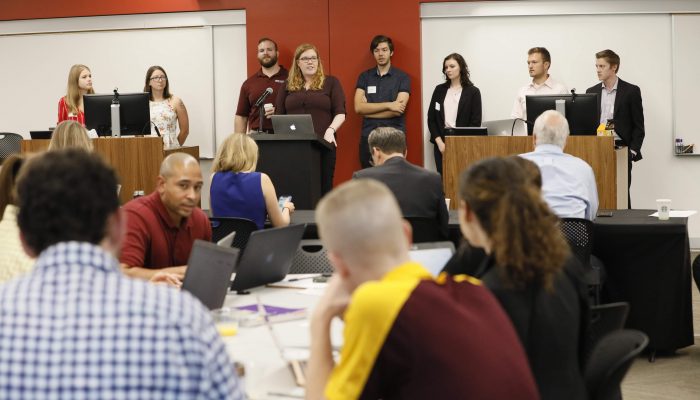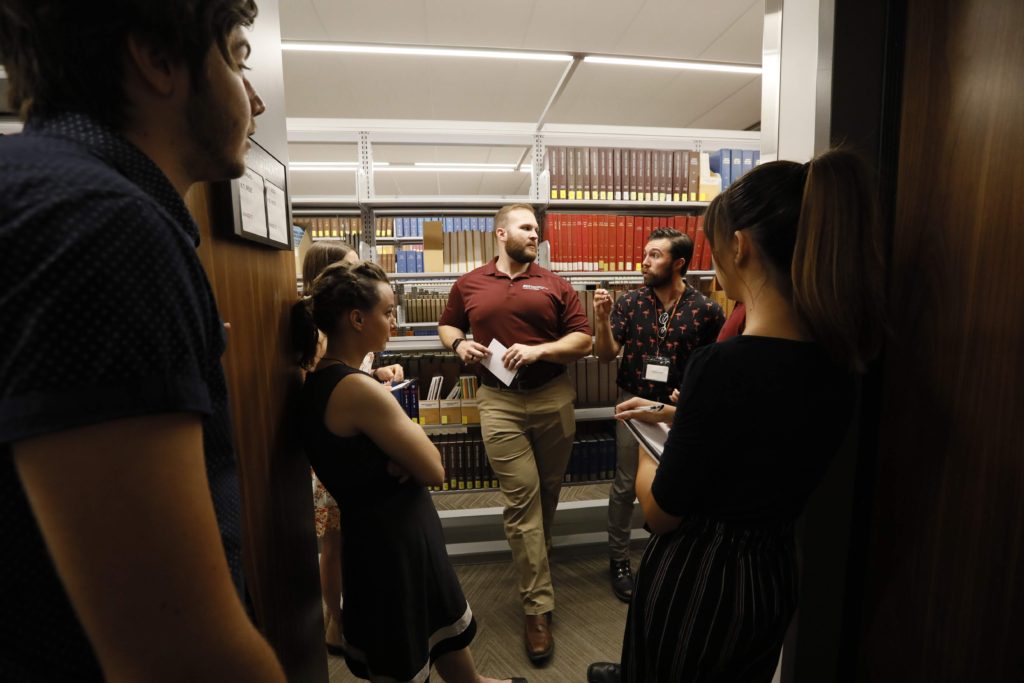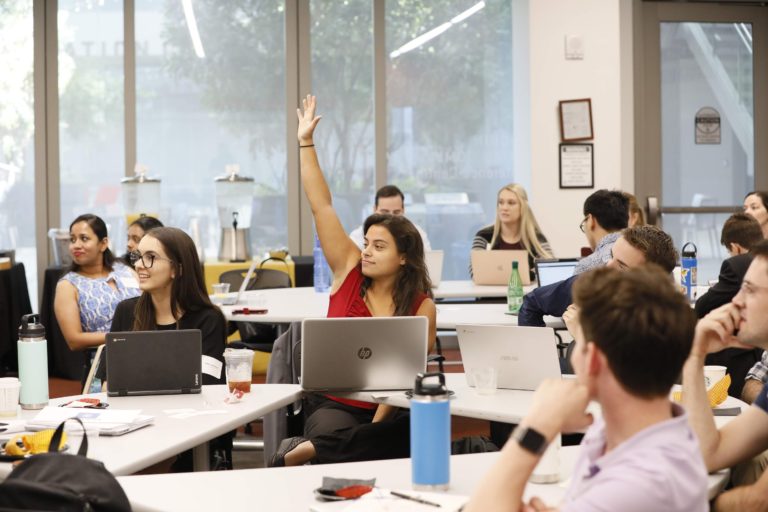Pedro Pizano. Pedro is the Northwestern-McCain Public Interest Legal Fellow at the McCain Institute for International Leadership. He participated in the simulation as part of team China.

We usually receive three educations. First, the one that our parents give us. The second education is that which we receive at school. The third, from the real world. This last one, according to Montesquieu, usually contradicts what we learn from the first two.
In early October, the International Rule of Law and Security Program held an atrocity prevention simulation at Arizona State University’s (ASU) Sandra Day O’Connor College of Law. Diplomatic corps around the world use similar simulations to test policies and train their officers.
The simulation was attended by 58 students from schools across ASU and was designed by James Finkel, a former senior U.S. government official with experience in efforts to prevent and respond to mass atrocities. They were placed into six different teams each led by a former U.S. government official. The goal was to simulate the actual lived experience that diplomats across the world go through when confronted with an unfolding mass atrocity.
My desire to learn about atrocity prevention prompted me to go to law school. The simulation felt realistic and provided fascinating insights about policy-making, diplomatic negotiations, and the development of interpersonal relationships as one of the most important aspects in stopping atrocity crimes. It was profoundly eye-opening.
Over the course of six marathon sessions, we were presented with conflicting and incomplete information about an atrocity that was happening in real time in a real place. The atrocity was fictitious but the root causes of it were real. We had to understand the barrage of “injects”—classified memos, press stories, maps, pictures, and rumors—that we received in real time to each of our inboxes. Each team received different injects. We had to appoint ambassadors, walk across the building to try to get information from other teams, prepare a response and a policy, and ultimately figure out, over two days, if it was in our best interest as a country, to stop a genocide.
We failed to stop the genocide.
In this simulation, the world turned a blind eye—as it often has—to what it had already declared a low-intensity conflict that was too far away and not legally sufficient to be a genocide. Two-hundred people burned alive in a church because of their religion was only characterized as a probable early sign of a possible genocide, and not for what it was: genocide. This is exactly what happens in the real world. These kinds of surprising results represent the value of this exercise.

The value is that it forces one to feel the pressures, rejections, and frustrations of diplomats instead of just reading or being lectured about them. One goes into these exercises with an “idealist” mentality that in a simulation, at least, one should be able to stop or contain an atrocity. However, one is quickly subsumed by the imagined policies of the country one represents and all the frustrations of a diplomat: the doors politely shut in your face, the double-speak, the lack of trust, asymmetrical information, and disparate ideologies or frameworks.
I felt like Samantha Power in the situation room being snapped at by President Obama, who reportedly said, “We’ve all read your book, Samantha,” when she futilely insisted the U.S. stop the mass slaughter in Syria.
Obama was then referring to Samantha Power’s 2002 book A Problem from Hell: America and the Age of Genocide. The book, which won a Pulitzer, is about how and why the U.S. should stop genocides. This year Samantha Power published a memoir called The Education of an Idealist.
Maybe some miseducation is just as important.
